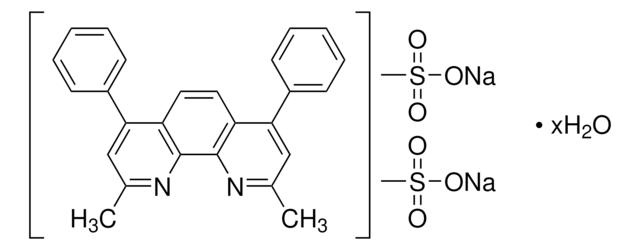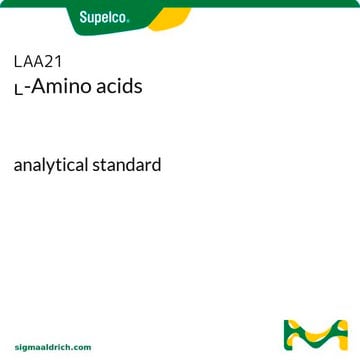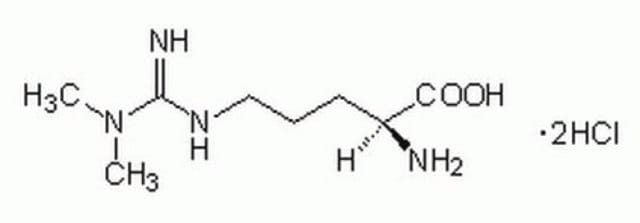G6014
rac-Glycerol 1-phosphate disodium salt hydrate
≥75% (enzymatic)
Sinónimos:
DL-α-Glycerophosphate disodium salt hydrate
About This Item
Productos recomendados
Análisis
≥75% (enzymatic)
impurezas
~6 mol/mol water
temp. de almacenamiento
2-8°C
cadena SMILES
O.[Na+].[Na+].OCC(O)COP([O-])([O-])=O
InChI
1S/C3H9O6P.2Na.H2O/c4-1-3(5)2-9-10(6,7)8;;;/h3-5H,1-2H2,(H2,6,7,8);;;1H2/q;2*+1;/p-2
Clave InChI
OFNNKPAERNWEDD-UHFFFAOYSA-L
¿Está buscando productos similares? Visita Guía de comparación de productos
Aplicación
Acciones bioquímicas o fisiológicas
Calidad
Código de clase de almacenamiento
13 - Non Combustible Solids
Clase de riesgo para el agua (WGK)
WGK 3
Punto de inflamabilidad (°F)
Not applicable
Punto de inflamabilidad (°C)
Not applicable
Equipo de protección personal
Eyeshields, Gloves, type N95 (US)
Certificados de análisis (COA)
Busque Certificados de análisis (COA) introduciendo el número de lote del producto. Los números de lote se encuentran en la etiqueta del producto después de las palabras «Lot» o «Batch»
¿Ya tiene este producto?
Encuentre la documentación para los productos que ha comprado recientemente en la Biblioteca de documentos.
Nuestro equipo de científicos tiene experiencia en todas las áreas de investigación: Ciencias de la vida, Ciencia de los materiales, Síntesis química, Cromatografía, Analítica y muchas otras.
Póngase en contacto con el Servicio técnico







